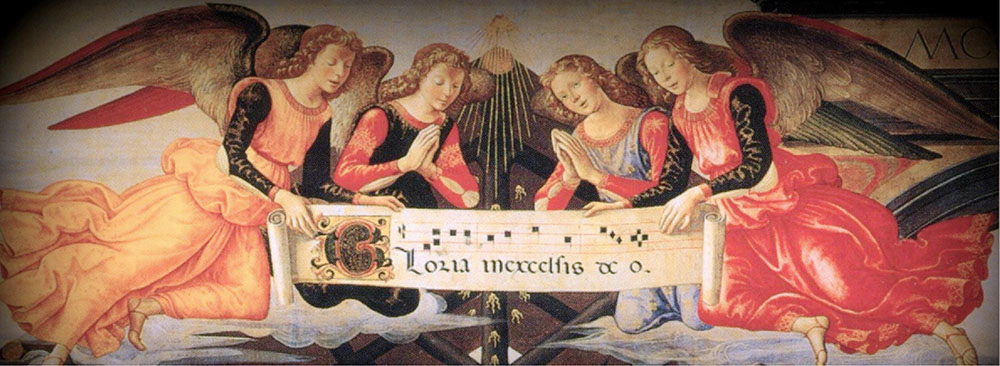
Chant lifts the heart
and opens the soul to the world beyond. Experience the ancient song of God’s people in one voice, one breath, one heartbeat.
The Psalms are the foundation of sung prayer. They are meant to be sung, not merely read. Composed under the inspiration of the Holy Spirit, the Psalms are our most ancient hymnal (in Hebrew: tehillum, “songs of praise”, General Instruction of the Liturgy of the Hours, no. 103) and occupy a privileged place in the Church’s liturgy.
The musical quality inherent in their very structure allows a perfect blend of word and melody. Thanks to the Psalms’ non-metrical form, chant, with its free meter, is capable of expressing the word of God more eloquently than any other music. Their poetic form does not consist of rhyme or rhythm like other poems. For that reason, the Psalms do not lend themselves to ordinary metrical compositions like so many hymns and songs. Instead, the poetic structure of the Psalms consists of parallel ideas, feelings or images that express the same thought in different ways.
Take Psalm 119:1 for example: “Blessed are those whose way is blameless; who walk in the law of the Lord.” Same idea expressed in different ways.
Because the Psalms are the word of God, they hold great power to lift up the heart and elevate the mind to heavenly things (Colossians 3:1-2) especially when sung. Even the liturgical prayers of the Church and many of her most beloved hymns draw their inspiration from the Psalms. Thus, when we chant the Psalms, other passages of sacred scripture, or the many parts of the Mass that are meant to be sung, they not only teach us how to pray, they teach us how to pray with the mind of Christ (Philippians 2:5).
